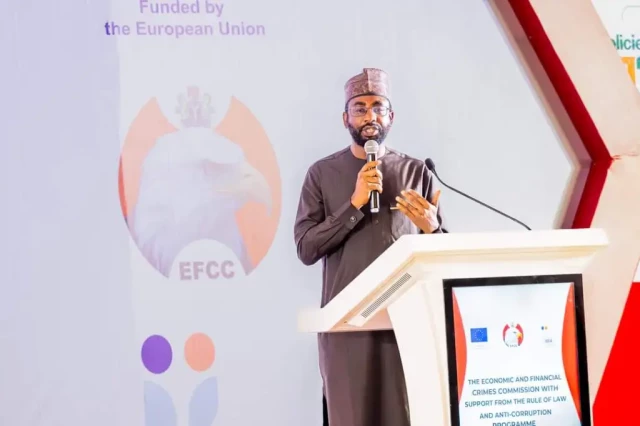The National Information Technology Development Agency (NITDA) has called on the public and private sectors to invest more in training cybersecurity professionals, emphasizing that the benefits of securing organisations and processes far outweigh the risks of cyber-attacks, as part of efforts to strengthen national security through robust cybersecurity measures and digital trust.
The Director General, NITDA, Kashifu Inuwa, made the plea as a Guest Speaker while presenting a paper titled “Alternative to Cybercrime” at the National Cybercrimes Summit 2024, organised by the Economic and Financial Crimes Commission in Abuja.
The summit, with the theme: “Alternate to Cybercrime: Optimising Cyber Skills for National Development,” is a platform that brought together captains of industries, heads of security agencies, traditional and religious leaders to share ideas, expertise and experiences with a focus on enhancing digital skills as strategy to combat cybercrime.
Inuwa emphasised the urgent need to address the growing menace of cybercrime in Nigeria, while proposing alternative paths for Nigeria’s youth and strategies to fortify national cyber resilience.
He detailed the complexities of cybercrime, noting that it was no longer restricted to laptops and desktops but extends to mobile devices, smart TVs, cars, and more, as everything becomes interconnected through technology.
He outlined five major categories of cybercrime identified by research, which are technical products or services attacks, attacks and extortion, data or identity theft, scam and cashing out or money laundering, adding that the financial sector remained the most vulnerable in Africa, with over 3,300 cyber-attacks reported weekly.
While stressing that cybercrime is a global issue that affects every facet of the digital economy, particularly in Nigeria, he said: “We are confronted with an urgent reality, Nigeria, a nation with a rich culture, talent and limitless potential is unfortunately grappling with the global menace of cybercrime but today, we are going to look at alternatives to cybercrime.”




















